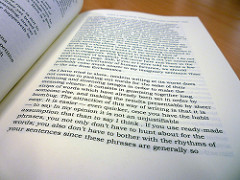Talk to enough authors, and you’ll learn the axiom that anybody can call themselves an agent. It’s easy. Just call yourself one, and boom, you are one.
It’s not just agents anymore. With today’s technology, anyone can call themselves a “publisher” or “publishing house” with nothing more than a computer in a home office.
 This isn’t a bad thing. It’s essentially how I work as Alliteration Ink. It’s great for DIY and indie authors – and I think that’s a large part of why authors have started calling themselves "publishers". They want the vestigial respect of the title (and avoiding the supposed stigma of being self-published). But the skills – and motivations – to publish your own work are not identical to those of publishing someone else’s. And worse, this whole "call yourself a publisher" thing has thrown open the door for scammers and unethical people to present themselves as something they’re not.
This isn’t a bad thing. It’s essentially how I work as Alliteration Ink. It’s great for DIY and indie authors – and I think that’s a large part of why authors have started calling themselves "publishers". They want the vestigial respect of the title (and avoiding the supposed stigma of being self-published). But the skills – and motivations – to publish your own work are not identical to those of publishing someone else’s. And worse, this whole "call yourself a publisher" thing has thrown open the door for scammers and unethical people to present themselves as something they’re not.
So I wanted to come up with some quick litmus tests to determine if someone is a real publishing house or not. Here’s the ones I’ve come up with so far:
- The do not require payments from the author.
- The author is paid in something more than author copies
- Editorial oversight/control from someone separate than the author
- They do not publish their own work as their main imprint. 1
Number four is perhaps the most problematic one here. I’m trying to draw a clear line between being a self-publishing author (again, no problem with that) and being a publisher. They’re different hats – just like being a publisher and providing publishing services are two different hats. Blurring the line between being a publisher and self-published author is problematic at best.
(I actually fail number four – I have two drabble collections that fall into this category. I’m not happy about that, and will have an announcement regarding that later this week.) [EDIT: That announcement is here, announcing Pursued By Bears as a separate imprint.]
Again, these are quick-and-dirty litmus tests, not a substitute for an in-depth evaluation. I still recommend ITW’s checklist to evaluate a publisher of any size. But if someone fails more than one of the tests above, maybe you can safely give them a pass.
